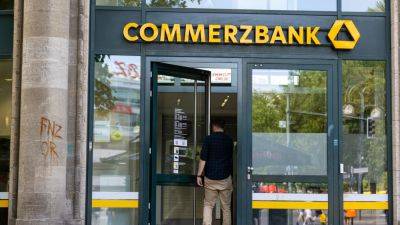What buying Commerzbank would mean for UniCredit — and the banking sector
UniCredit's move to take a stake in German lender Commerzbank is raising questions on whether a long awaited cross-border merger could spur more acquisitions and shake up the European banking sector.
Last week, UniCredit announced it had taken a 9% stake in Commerzbank, confirming that half of this shareholding was acquired from the government. Berlin has been a major shareholder of Commerzbank since it injected 18.2 billion euros ($20.2 billion) to rescue the lender during the 2008 financial crisis.
UniCredit also expressed an interest in a merger of the two, with the Italian bank's CEO Andrea Orcel telling Bloomberg TV that "all options are on the table," citing the possibility that it either takes no further action or buys in the open market. Commerzbank has given a more lukewarm response to the merger proposals.
But analysts have welcomed the move by UniCredit, particularly because a tie-up might spur similar activity in Europe's banking sector — which is often seen as more fragmented than in the U.S., with regulatory hurdles and legacy issues providing obstacles to mega deals.
So far, the market has responded positively to UniCredit's move. Commerzbank shares jumped 20% on the day UniCredit's stake was announced. Shares of the German lender are up around 48% so far this year and added another 3% on Wednesday.
Investors appreciate the geographical overlap between the two banks, the consistency in financials and an assumption that the transaction is "collaborative" in nature, UBS analysts, led by Ignacio Cerezo, said in a research note last week. According to UBS, the ball is now in Commerzbank's court.
Analysts at Berenberg said in a note last week that a potential merger deal, "should, in theory, have a limited effect on







